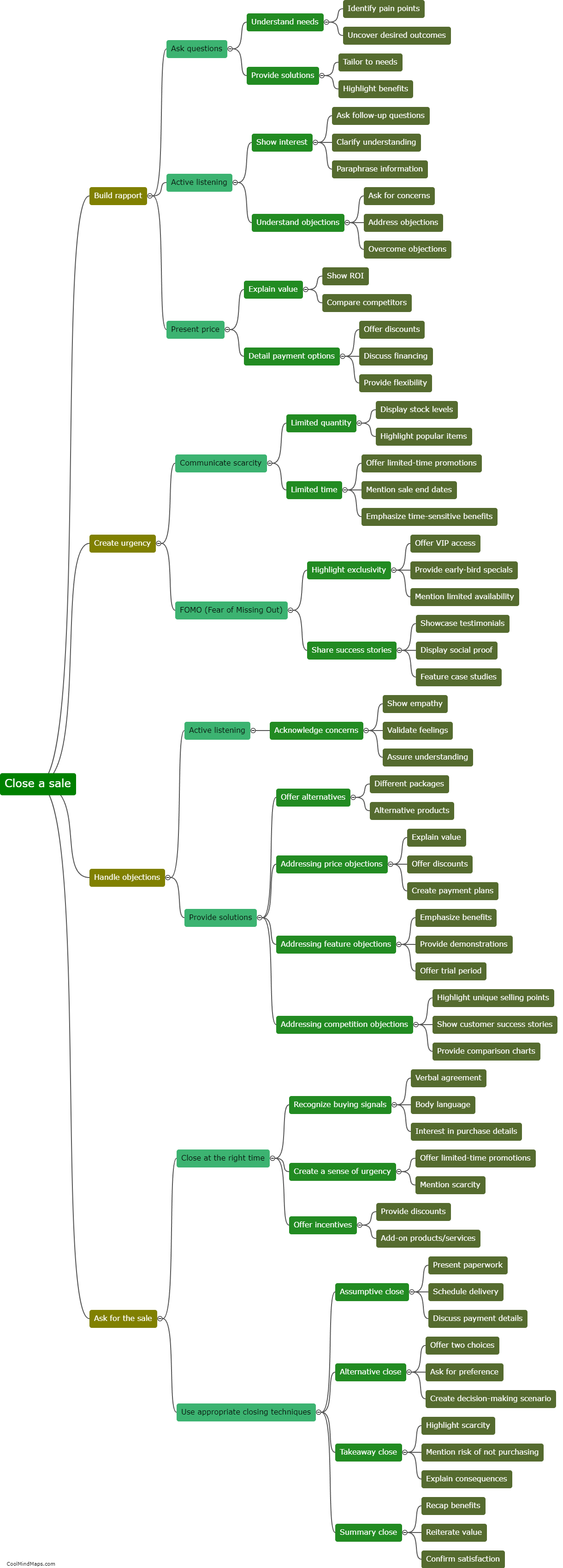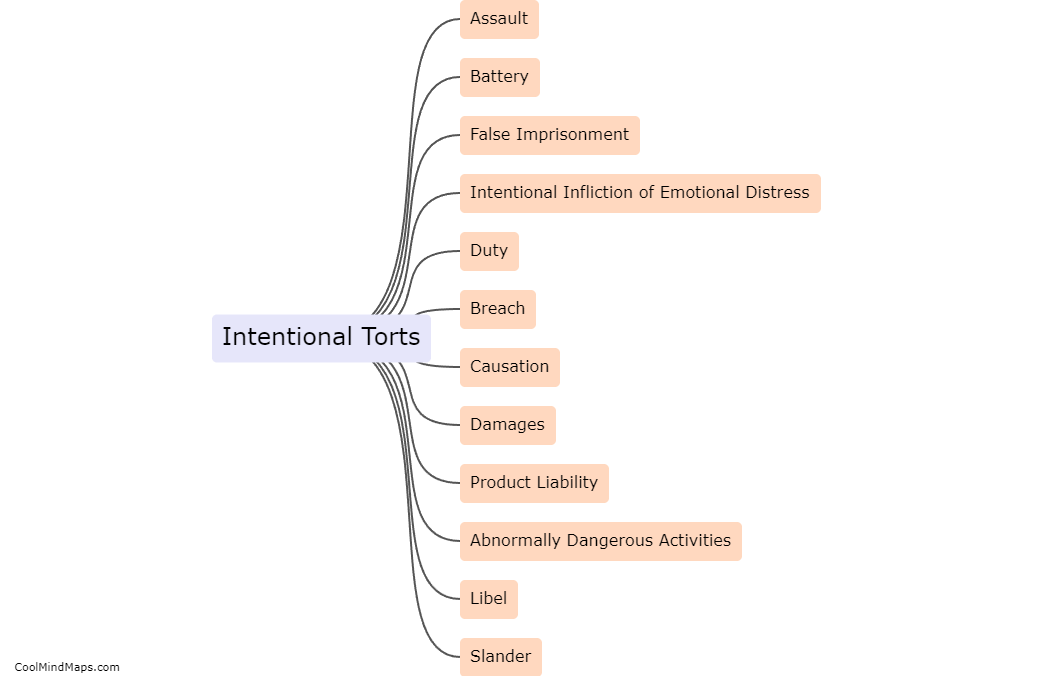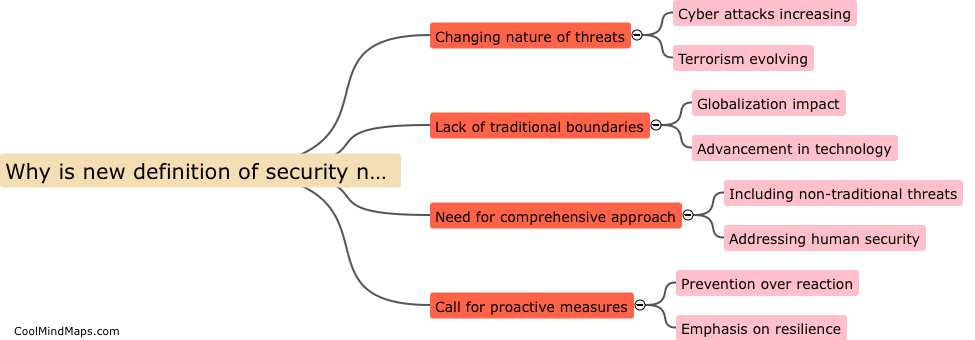What are some examples of strict liability torts?
Strict liability torts are legal actions in which a person or company can be held liable for damages without the need to prove fault or negligence. Some common examples of strict liability torts include cases involving defective products, such as faulty appliances or hazardous chemicals. Additionally, cases involving certain types of activities, such as owning a wild animal or storing dangerous substances, can also fall under strict liability. In these cases, the focus is on whether harm was caused, rather than on the defendant's intentions or actions.

This mind map was published on 12 May 2024 and has been viewed 73 times.











